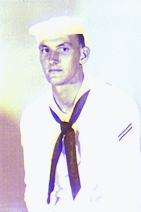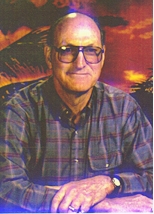Dr. Cameron Pleased With Post-Surgery Progress
Roger Fluegel and his wife June have been married for forty years. Together they have raised two children and they are blessed with three happy grandchildren. The Fluegels have a passion for learning and children. Roger and June both work as special education substitute teachers in Arroyo Grande, California. They teach at the elementary and junior high school levels. Like the TV ad says, it's more than a job, it's an adventure. They cannot imagine retiring. Recently, however, Mr. Fluegel was diagnosed with mesothelioma.
In March of 1998, Roger Fluegel developed a bad cough. The cough worsened when he would lie down on his right side. A physical fitness buff, Mr. Fluegel continued to ride his exercise bike and take long walks, thinking the symptoms would alleviate themselves. As a lifetime non-smoker, he thought a cough was nothing to worry about.
When the cough did not subside, Roger went to Sansum Medical Clinic in Santa Barbara, California. The doctors took chest films and found a large pleural effusion on the right side of his chest. The doctors also noticed a nodular density in the left lung. On June 30, a CT scan and thoracentesis were performed. The doctors removed over two quarts of fluid from Mr. Fluegel's right lung. The fluid was analyzed, and the doctors suspected mesothelioma. The pathologists at Sansum Medical Clinic recommended a VATS (video assisted thoracic) biopsy of the pleura to confirm the diagnosis.
Roger traveled to the Cottage Hospital in Santa Barbara for the VATS biopsy on his right lung, a bronchoscopy on his left lung, and a talc pleurodesis. A battery of immunoperoxidase staining was also done. After reviewing the results of all these tests and procedures, Mr. Fluegel's doctors diagnosed mesothelioma.
The Fluegels could not believe it. Roger was only 59 years old, and he had always been healthy. They were determined to search for the best treatment available. In September, Roger met with Dr. Robert Cameron at the University of California, Los Angeles. Dr. Cameron is a surgical oncologist. He is of the country's leading experts in mesothelioma treatment. Dr. Cameron discussed many potential treatment options with Mr. Fluegel, including taking no further treatment, extrapleural pneumonectomy, or pleurectomy and decortication with intrapleural chemotherapy and postoperative radiation therapy. Dr. Cameron considered Mr. Fluegel a good candidate for surgical palliation with a pleurectomy and decortication (removal of the outer membrane of the lung). Roger agreed to the surgery, and Dr. Cameron ordered another CT Scan to assess any changes in the tumor since July.

On September 17, Roger was admitted to the UCLA Medical Center, where he underwent a right thoracotomy, parietal pleurectomy decortication, and partial resection of the diaphragm with intrapleural chemotherapy, including cisplatin and cytarabine. Dr. Cameron found that Mr. Fluegel had extensive disease that was difficult to treat due to the unusual adhesions on his esophagus, pericardium (heart sac) and chest wall. The surgery lasted more than twelve hours, far longer than the normal six to eight hours. Three chest tubes were inserted during the procedure. Mr. Fluegel's 6th and 10th ribs, removed during surgery, along with the right pleural tumor, were delivered to pathology for immunohistochemistry special staining. The pathologist's intraoperative report again confirmed the diagnosis of mesothelioma.
When the surgery was complete, Dr. Cameron advised that he had resected as much tumor as he could see with the naked eye. Roger was discharged from the hospital on September 22.
On October 9, Roger returned to see Dr. Cameron for a follow-up visit. Dr. Cameron was pleased with Mr. Fluegel's progress. Although Roger still felt some pain in his chest as a result of the surgery, it was decreasing. Roger recalls: "the recovery was a lot tougher and harder than I expected. I got tired easily, but if I rested too long, I felt light-headed and dizzy when I tried to get up. I have definitely seen much better days."
Although the recovery from surgery has been difficult, the Fluegels could not have been more pleased with Dr. Cameron and his staff. According to Roger, "the whole team was incredible. We just love Dr. Cameron." Mr. Fluegel is scheduled to see Dr. Cameron again in January of 1999. One minor setback to his recovery occurred on October 20, when he was admitted to the hospital for dehydration. He was released shortly thereafter. Because Mr. Fluegel was having difficulty retaining fluid, his post-operative physician insisted that he drink 2 liters of Gatorade a day, in addition to his normal fluid intake.
Mr. Fluegel met with his radiation oncologist to discuss and started radiation therapy on October 29, 1998. The goal of the radiation therapy is to eradicate stray malignant cells that are floating in the pleural cavity. The radiation therapy will consist of five treatments each week for five to six weeks.
** POSTED DECEMBER 17, 1998 **
"When it comes to Mesothelioma, there are so many people in the dark, including doctors. We need to get the word out that good treatments are possible. I know of other patients who were offered zero treatment options because the doctors were simply ignorant. Patients and doctors need to get informed and be proactive. I would like others out there to do as well as I'm doing." Roger Fluegel, January 18, 2000
An Update -- 1/26/01
Mr. Fluegel's cancer has spread to his lungs and he is on oxygen all the time. Dr. Cameron tried more chemotherapy, but unfortunately it never reached the cancer. Dr. Cameron said there is nothing more they can really do. Mr. Fluegel is not well enough to enter any trials. We are praying for Mr. Fluegel and his family
"My name is Stephanie Pirman, and I lost my dad Roger Fluegel to Mesothelioma last Friday March 9, 2001. We all hope and pray that all the hard work of MARF and people like Dr. Cameron can someday bring an end to this disease. Dr. Cameron performed surgery on my dad in August of 1998. Without the surgery my dad would not have been able to walk me down the aisle at my wedding. I am so grateful. I only hope that you can further the research so other families do not have to suffer this tragic loss."


